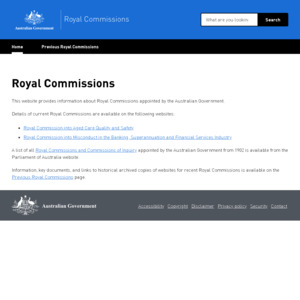From the ABC, this article titled Payday loans increase as households pushed into risky credit from non-bank lenders.
After increased scrutiny and accusations of irresponsible lending were levelled by the Hayne Royal Commission, banks have pulled back on new finance and tightened credit — something experts said was having the unintended consequences of pushing households into often riskier forms of credit offered by non-bank lenders.
Oh really. Actions can have unintended consequences?
What did people and politicians think were going to happen when you crater the value of most people's main asset and at the same time cut off the most common form of lending without addressing the reasons people were borrowing in the first place?
But the ABC being the ABC they waste the next third of the article on an anecdotal sob story about a woman who doesn't know the meaning of the word "budgeting".
And just re: 'payday loans' - you're never going to have short term unsecured loans to people who need them at low rates because by very definition those are the riskiest loans and you need high rates to offset that risk. You can't regulate out of that because you can't force people to lend out money as charities. The people needing these loans will either pay high interest, or starve.
Anyways, just another example of emotional outrage of the masses overruling a search for actual solutions. "Banks Bad!" Yeah yeah. Hope people like the alternative.
Thoughts?

Ha! Not too surprised though. It's not like there's zero correlation between "financial illiteracy" and "receiving Centrelink".
Of course, if you tried to help and limit what people could do with their money, you'll be accused of being condescending and paternalistic:
And that only restricts using welfare money to pay to "buy alcohol, drugs or gamble".
Edit: Oh and from your linked article:
No amount of technology can overcome human stupidity. That is a lesson we should've all learned by now.